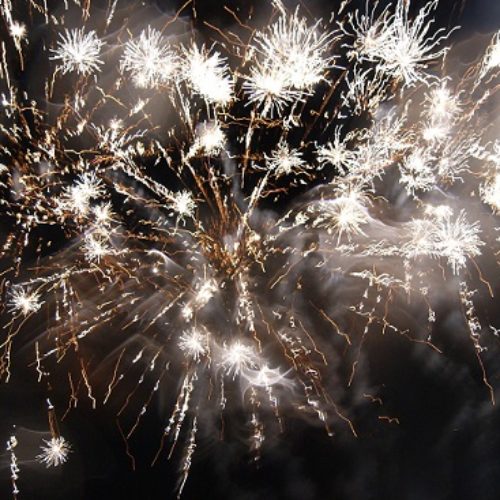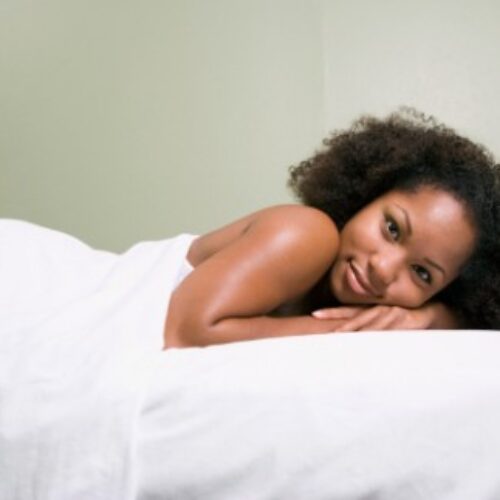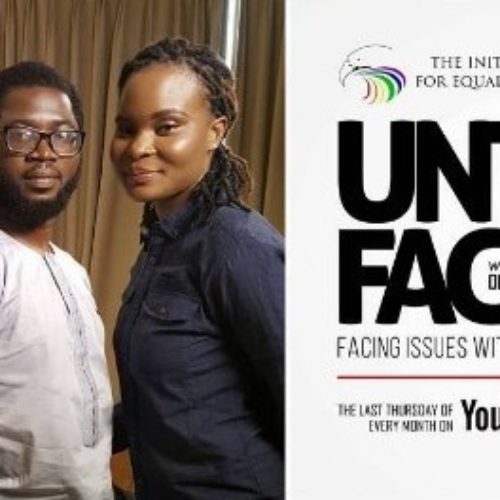Climbing Yemisi Aribisala’s Snail Tree
I was very curious about Yemisi Aribisala’s book, Long Throat Memoirs, when I first saw it online; those who know me personally already know I am very passionate about food and literature, and this book, which seemed to marry two of my favorite things, had me intrigued. I did a Google search and found out that it wasn’t actually a cookbook (yes, it has recipes). It was more than that.
I eventually bought it and I was blown away; Yemisi Aribisala delivered a brilliant, nuanced collection of essays centered on Nigerian cuisine, each with hilarious anecdotes and quips that make you just want to laugh out loud. The book read like one having a conversation over a vintage bottle of wine with an eccentric older auntie, one who never got married nor had any kids and one who makes even the most mundane things interesting.
I was literally having a braingasm and enjoying it until I got to page 112, under the essay she titled The Snail Tree, and I was (briefly) put off by the narrative that she advanced. I still went on to enjoy and finish the book, but I felt compelled to pen a few thoughts in response to the points highlighted by Ms. Aribisala in that chapter, mostly because this is not the first time I have heard these arguments.
Let me first of all tell you the things she said that ticked me off:
“I escaped other vocations because I have a problem with authority and I hate being told what to do. Now I am a writer and I have a list. I must be feminist, I must beat up Pentecostal Christians, hate the Nigerian government, support homosexuals in defining themselves in sexual terms of reference, and lambast the homophobic…”
Continuing further down, she said:
“A homosexual man shouldn’t expect sympathy from me because I have thirty years experience of being thought of as a sexual object and a baby making machine. For twenty eight of those thirty years, the be all and end all of my life was meant to be marriage. This gives me way more justification to whine about unfairness. When I meet people, I don’t want to know if they are homosexual. I don’t want to care. I want to know what they eat for dinner and breakfast. I’m squeamish about the minutest details of their sexuality, and I don’t expect them not to be squeamish about the details of mine…”
Now I read these parts and I initially felt anger which later dissipated and was replaced by mild irritation, because it appears Yemisi went into uncharted territory and tried to advance a point of view without clearly having all the facts (or maybe she views from a colored perspective). She is also trying so hard to portray herself as a prude, which would have worked, except for the fact that I am not buying it, and neither is she. It is almost as if she wants to convince herself on how sexually repressed she is, which begs the question why she needs to let us know this if she truly believes it herself. However this is not the main crux of my piece anyway, so let me not digress.
Now for those who don’t know by now, I am a homosexual man, the stark, raving, incorrigible kind, and I am responding to this peace from that perspective. The question I would like to ask is: why does Ms. Aribisala feel pressured to lambast homophobic people and support homosexuals to define themselves however they see fit, if she is not homophobic herself? If she really believes in the equality of all humans regardless of sexual orientation and gender identity, why then is it a big deal for her, big enough a deal to make it into her essays? Shouldn’t it come natural to her; a belief in the equality of all humans (regardless), that is? If for example one doesn’t believe in the equality of the genders, such a person will resent any attempts to push him/her towards a feminist ideology (okay, let’s leave the tag, but at least an ideology that advocates equality. I won’t comment on the Pentecostal Christianity and feminism bit in that paragraph, I would focus solely on her comments on homosexuality which really do not sit well with me.)
As if that wasn’t enough, she drew parallels between being gay and being a female and tried to explain how being female allows her to “whine” about unfairness. Now I won’t even know what to say to her about this assuming I met her; being female of course is often a burden, especially in these parts where patriarchy has reduced women to second class citizens. But come on, really? The struggles of gay people are just like the struggles of women? And when gay people speak up about their issues, Ms. Aribisala thinks they are “whining” about unfairness? How terribly ignorant of her! With all the disadvantages to being a female in Nigeria, I am yet to come across any piece of legislation that prescribes a 14 year jail term for women in Nigeria when they attempt to marry the men they love. Now I am speaking of course about straight women because the analogy she used was that of a straight woman. Gay people are dragged out of their houses upon suspicion of homosexual activity and attacked in the most horrific way possible while the security agents look the other way. A consequence of homosexuality in Nigeria (and many African countries) can be death, but hey, we cannot “whine about unfairness” now, can we? Women suffer too, so we should shut up and sit down.
This made me really sad.
Now about gay men putting their sexuality into the equation every time, I have a theory based on my own experience. Personally it took me a quite some time before I became comfortable in my sexuality, and then I decided never to befriend homophobic people who always leave me feeling less than human. We don’t get to pick family members and maybe coworkers, so we really can’t help it if they are homophobic, but I basically keep these interactions minimal. However when I am making friends, I completely have a choice in the matter and I straight up like to know where you stand on gay rights before I can decide if I can be friends with you or what sort of relationship we can have. So from my point of view, it is not like gay people like putting their sexuality out there; they just want to know where to place you and to decide what amount of space to allocate to you in their lives.
Also I will like to ask what is it about a gay person’s sexuality that is so off putting (unless of course one is homophobic anyway). I always hear these arguments where people say it’s okay to be gay as long as you don’t “put it in my face”, or when they sweetly tell gay men not to allow their sexuality define them (meanwhile don’t you find it curiously amusing that this is only said to gay people?). Look around you, people, it is a heterosexual world, and everywhere I look, the sexuality of heterosexual humans is slapped in my face; from TV shows (thank heavens for diversity these days) to ads, to movies and books, and I don’t complain about how it is all around me. But god forbid a conversation comes up around my sexuality; I will be accused of putting it in your face, while you will rather see other parts of me.
Chimamanda Ngozi Adichie (my favorite writer ever) once talked about feminism lite and I laughed when I read it; but come to think of it, there is such a thing as homophobia lite; it is masked by intelligence and nuanced discussion, but when you focus, you can smell it because even though it is not dangerous, it reeks of a belief that homosexuality should be tolerated and not accepted.
Written by Dennis Macaulay
About author
You might also like
Why Settle for Sparks When You Can Have Fireworks?
There was a cold demeanor about him. You could feel it in the quiet and stuffy sitting room we were in. He sat a safe distance from me, as did
AN ACE UP YOUR SLEEVE
Hello KD, it’s Dandie, your favorite asexual again. Last year, I penned my story (Am I Queering Wrong?) where I talked about my struggle with relationships as an asexual in
UNTOLD FACTS EPISODE TWO: BACKLASH OF DISCRIMINATORY LAWS
This episode of Untold Facts features, and discusses LGBT discriminatory laws and the damage cause by such laws. The guests, Ijeoma Akwiwu (legal practitioner) and Ayo Sogunro (legal practitioner and










6 Comments
IBK
February 20, 18:54The last paragraph.. You find homophobia lite usually in intellectual people who should know better but are too mentally lazy/fearful to take that leap into acceptance. The facts are staring them in the face but so as not to seem too permissive they cling on to beliefs they should have let go of. It’s also unfortunate that some gay men buy I to the idea since afterall they are not exactly homophobic or people don’t have to like us or some of their other excuses.
Still tolerance is better than intolerance.. Acceptance is in the bigger picture. Nice piece, Dennis.
Jide
February 20, 22:45Great article, Dennis. I’m inclined to copy some gems you dropped.
Mohammad
February 20, 23:45What’s your email address Dennis? We seem to share the same taste and you intrigue me. I bought Yemisi’s book at the start of the year having followed her Next columns from 2009 but I am yet to read it. I might just move it up the list now
Dennis Macaulay
February 23, 06:25Portharcourt.boi@gmail.com
Jorges
August 11, 16:04Of changing attitudes (Chan)???
Jorges
August 11, 16:03Au contraire, in a perfect world, I think Aunt Yemisi’s attitude would have been the correct attitude “It matters nothing to me”. And so it ought to be for everyone, for that matter. Now, if only for this were a perfect world….